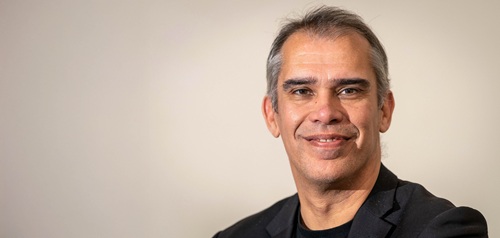The conclusion of the UK Prime Minister’s statement to Parliament on the government’s plan for ‘living with Covid’, in which he set out the rationale for lifting all legal restrictions in England, bears repeating, I think.
Opinion
Newfound Covid ‘freedoms’ are a privilege and should be handled with care
Speaking to MPs on 21 February, Boris Johnson said: “We don’t need laws to compel people to be considerate to others. We can rely on that sense of responsibility to others, providing practical advice in the knowledge that people will follow it to avoid infecting loved ones and others.
“So let us learn to live with this virus and continue protecting ourselves and others without restricting our freedoms.”
This spirit and the sense of personal responsibility the Prime Minister is calling on here is hard to argue with.
 Mike Robinson: "It is in nobody’s interests to see large numbers of Covid outbreaks in workplaces, which will ultimately curb everyone’s freedoms."
Mike Robinson: "It is in nobody’s interests to see large numbers of Covid outbreaks in workplaces, which will ultimately curb everyone’s freedoms."
Indeed, his point about people being given practical advice and deciding for themselves underpins much of our public health policy.
Even health and safety best practice relies on people using their own judgment, particularly when it comes to personal risk, and the direction of travel in the sector is that individuals should be increasingly trusted to assess risk for themselves and able to make their own decisions, having been given the best available information. Safety should be seen as a business ‘outcome’, not just another process.
Now that most people are vaccinated and Omicron has proven to be milder than first feared, the government has decided much of the ‘architecture’ around our decision-making can be removed.
Taking any scaffold or support away is never easy. Think of any building or extension work or learning to ride a bike using stabilisers. That’s why some elements in this Covid plan – like day one Statutory Sick Pay and Employment Support Allowance – will remain in place at least temporarily, while others have already been taken away.
Two that have gone will impact on employers and their staff. On the one hand, routine contact tracing has ended, so contacts will no longer be required to self-isolate or advised to take daily tests. On the other, people will no longer be legally obliged to tell their employer when they are themselves required to self-isolate.
Taking away both leaves it up to employers and their staff to work out how best to act, at least until the government replaces the current ‘Working safely during coronavirus (Covid-19)’ guidance, which it will on 1 April.
That’s why I have said that it’s vital we all remain cautious, and I called on employers to continue to allow their staff to take time off when they test positive or have Covid symptoms.
No one wants to see infections rise again or spiral out of control. It is in nobody’s interests to see large numbers of Covid outbreaks in workplaces, which will ultimately curb everyone’s freedoms, as well as harm productivity and the economy.
Any good risk assessment is kept under review and updated regularly. I think the government should do the same with its plan for ‘living with Covid’.
Just as, at the end of last year, a ‘Plan B’ was required to tackle Omicron, it would be sensible for us all to consider our newfound ‘freedoms’ as a privilege, not a right, which may have to be given up should the circumstances change again.
I agree with the Prime Minister that we shouldn’t have to rely on laws to guide responsible behaviour, but as we have all seen only too clearly in the past two years, sometimes it is necessary to curb our own freedoms a little for the good of the whole.
Mike Robinson FCA is Chief executive of the British Safety Council
OPINION

Is workplace health safe in 2026?
By Kevin Bampton, BOHS on 10 February 2026
UK Government efforts to boost the economy and employment levels through approaches such as deregulation pose a serious threat to the country’s workplace safety standards and the health of our workforce.

How stress and burnout will shape the workplace in 2026
By Charlotte Maxwell-Davies, Mental Health UK on 09 February 2026
Burnout is rapidly becoming one of the nation’s most significant workplace challenges. It is emerging as a defining issue for organisations and wider society, as the UK contends with a long-term sickness crisis driven by poor mental health. Stress can be motivating in short bursts, but when left unmanaged it contributes to work absences and lost productivity, as well as presenting a clear risk to the health of workers.

A new year, a new approach to risk?
By Mike Robinson FCA, British Safety Council on 02 February 2026
The rulebook is becoming obsolete faster than we can rewrite it. While bureaucracies labour to update yesterday’s regulations, the world of work transforms daily.



